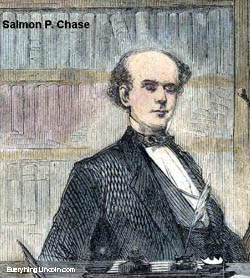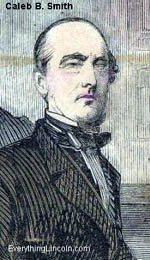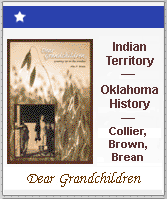
 |
 |
|
| |
||


Lincoln's Cabinetcompare with the present-day cabinet Secretary of State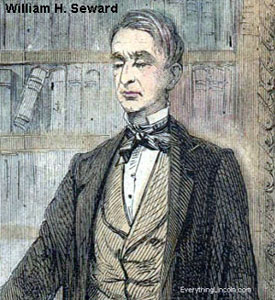
Next to the President, the highest executive officer of the government. Holds intercourse with the ambassadors and ministers of foreign governments accredited to ours, and conducts correspondence with them; prepares and issues instructions to our ministers and consuls abroad... Also collects and communicates to Congress all commercial information obtained through our ministers and consuls abroad, or from other sources. Receives the enrolled acts passed by Congress, that have become laws, and promulgates them. Causes the seal of the United States to be affixed to all civil commissions after they have been signed by the President. (In 1876, the U.S. maintained about 75 consuls in various parts of the world.) Secretary of the TreasuryCharged with supervision of the fiscal transactions and finances of the government, and execution of laws concerning commerce and navigation, the survey of the coast, the light-house establishment, the marine hospitals of the United States, and the construction of public buildings for custom-houses and other purposes. Secretary of WarIssues commissions, directs the movement of troops, superintends their payment, stores, clothing, arms, equipments, and ordnance, and conducts the works of military engineering. Secretary of the NavyProcures naval stores and materials, to direct the construction, arrangement, and equipment of vessels of war, and executes all orders of the President relating to the naval establishment. Attorney GeneralProsecutes and conducts all suits in the Supreme Court, in which the United States is a party, and gives his advice and opinion upon questions of law, when required by the President, or when requested by the head of any department. Also charged with the general superintendence and direction of all United States attorneys and marshals, as to the manner of discharging their respective duties. Examines the titles of all land to be purchased by the United States as the sites of arsenals, light-houses, custom-houses, and other public works; receives all applications for the appointment of judges, district attorneys, and marshals, and prepares statements to the President on applications for pardons, and the remission of imprisonment of public debtors. Secretary of the Interior
Postmaster GeneralOversees the Post-office Department and supervises three assistant postmasters-general. (In 1872, there were 31,863 post-offices in the country, each headed by a postmaster.) Vice President
Three of Lincoln's cabinet members are part of the Famous Fabrics 1600 Pennsylvania Ave. NW baseball card base set: William Henry Seward, William P. Fessenden, and Hugh McCullouch.
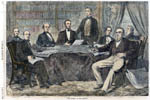
source of cabinet responsibilities: von Steinwehr, A. Centennial Gazetteer of the United States, J.C. McCurdy & Company, Philadelphia, 1876, pp. 43-49. First Cabinet engraving: Harper's Weekly, July 13, 1861, p. 437.
|
 |
Copyright © 2005-2016 Alta Omnimedia. All Rights Reserved.



